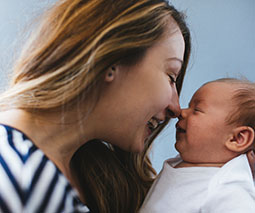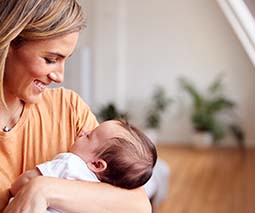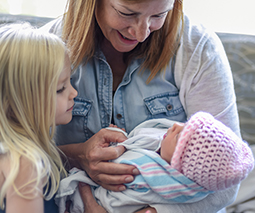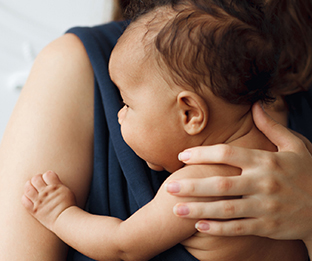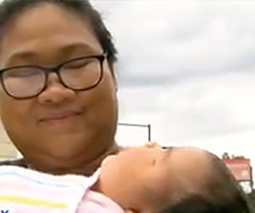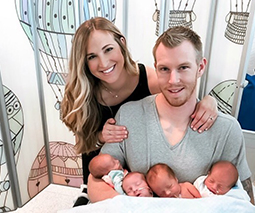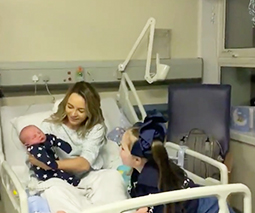Chrissy Teigen says eating her placenta saved her from second bout of PND
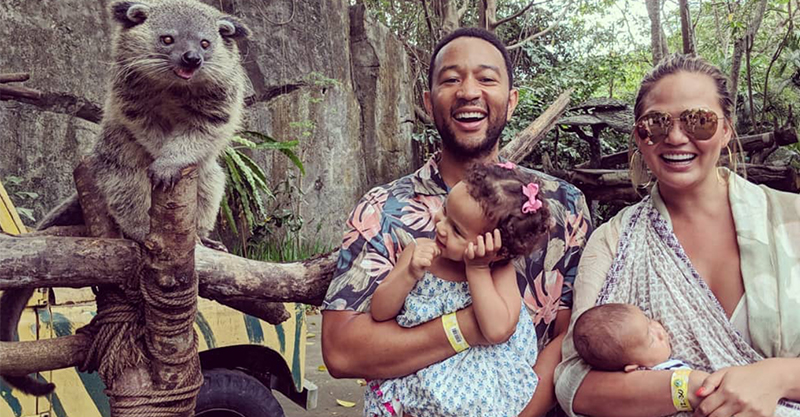
Foodie and Lip Sync Battle host and mum of two Chrissy Teigen has just done a long interview with CBS, and she revealed a little more about parenthood and her postnatal depression worries.
PND doesn’t discriminate
The Cravings author was diagnosed with PND when her eldest child Luna was three months old, navigating a truly difficult time with lots of support from her family and a course of antidepressants prescribed by her doctor.
“My doctor pulled out a book and started listing symptoms,” Chrissy said of that day. “And I was like, ‘Yep, yep, yep.’ I got my diagnosis: postpartum depression and anxiety.”
Read more about Chrissy Teigen:
- Chrissy Teigen showed off her chins – and we all felt better about ourselves
- Chrissy Teigen would like you to see her mozzie bitten “mom bod”
- Chrissy Teigen and her toddler just proved WASPS are the new puppies
She shared her PND experience openly in an essay for Glamour Magazine and on her social media accounts, keen to start a dialogue about a very common, very debilitating condition.
Explaining her willingness towards being frank about her struggles, Chrissy told CBS host Rita Braver that the idea of not talking about PND had never really occurred to her.
“I think people on social media are my friends,” she said. “And I think they deserved to know. I don’t know, is that so weird?”
Primetime placenta?
Chrissy’s second baby Miles was born four months ago, and the spectre of postnatal depression loomed large. She told Rita eating her placenta helped her avoid a second bout of PND.
“I don’t think I can have you eating your placenta on primetime,” a squeamish Rita replied.
“Really? That’s not a normal thing? I’m in LA, it’s very normal. They grill it here! You can try some of mine after,” Chrissy laughed.
Science suggests that eating your placenta (grilled, blended or encapsulated) has little impact on postpartum health, but anecdotally many mums – like Chrissy, for instance – beg to differ.
The Bali fix
Apart from snacking on her placenta, Chrissy and family were lucky enough to be able to head to Bali for a month after Miles was born, to bond and recuperate.
“I used Bali after I found out I had postpartum depression with Luna, to go somewhere and clear my head and try to get well,” she said.
“This trip, we planned it just thinking that maybe it might happen, so let’s go and let’s see, and not wait until I feel low or down. Let’s get there first and see if it will help. Because at this point you have to try anything to feel better.”
If you – or someone you know – are expecting a baby or have recently become a parent, and are finding things super-tough, please get in touch with PANDA. They’re on standby, ready to support mums and dads through difficult times.
Signs of postnatal anxiety or depression
- Panic attacks (a racing heart, palpitations, shortness of breath, shaking or feeling physically ‘detached’ from your surroundings)
- Persistent, generalised worry, often focused on fears for the health, wellbeing or safety of the baby
- The development of obsessive or compulsive thoughts and/or behaviours
- Abrupt mood swings
- Feeling constantly sad, low, or crying for no obvious reason
- Being nervous, ‘on edge’, or panicky
- Feeling constantly tired and lacking energy
- Having little or no interest in all the normal things that bring joy (like time with friends, exercise, eating, or sharing partner time)
- Sleeping too much or not sleeping very well at all
- Losing interest in intimacy
- Withdrawing from friends and family
- Being easily annoyed or irritated
- Feeling angry
- Finding it difficult to focus, concentrate or remember (people with depression often describe this as a ‘brain fog’)
- Engaging in more risk-taking behaviour (e.g. alcohol or drug use)
- Having thoughts of harming your baby
- Having thoughts of death or suicide.
